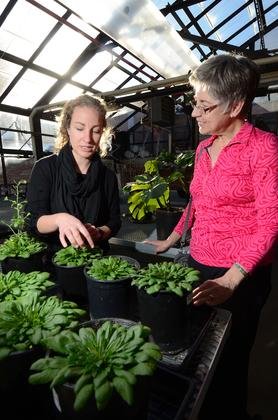 Summer is a time to celebrate our bursting gardens. But you may be wondering why your neighbor’s garden seems to be attracting all the butterflies, honeybees and hummingbirds, while yours seems to be attracting mostly aphids and raccoons. Our guest, Alison Peck, owner of Matrix Gardens in Boulder, talks with How On Earth host Susan Moran about how we make our gardens beautiful, biologically diverse, homes for native wildlife. She’s a landscape designer specializing in xeriscape, native plant and other earth-friendly landscapes.
Summer is a time to celebrate our bursting gardens. But you may be wondering why your neighbor’s garden seems to be attracting all the butterflies, honeybees and hummingbirds, while yours seems to be attracting mostly aphids and raccoons. Our guest, Alison Peck, owner of Matrix Gardens in Boulder, talks with How On Earth host Susan Moran about how we make our gardens beautiful, biologically diverse, homes for native wildlife. She’s a landscape designer specializing in xeriscape, native plant and other earth-friendly landscapes.
Some resources for gardening for wildlife:
* Xeres Society’s pollinator resource guide.
* Xeres Society’s book, Attracting Native Pollinators.
* Bio-Integral Resource Center, Berkeley, Calif.
* National Wildlife Federation’s “Garden for Wildlife” Program.
Hosts: Susan Moran and Joel Parker
Additional Contributions: Kendra Krueger
Producer, Engineer, Executive Producer: Joel Parker
Listen to the show:
Podcast: Play in new window | Download (Duration: 24:41 — 22.6MB)
Subscribe: RSS






